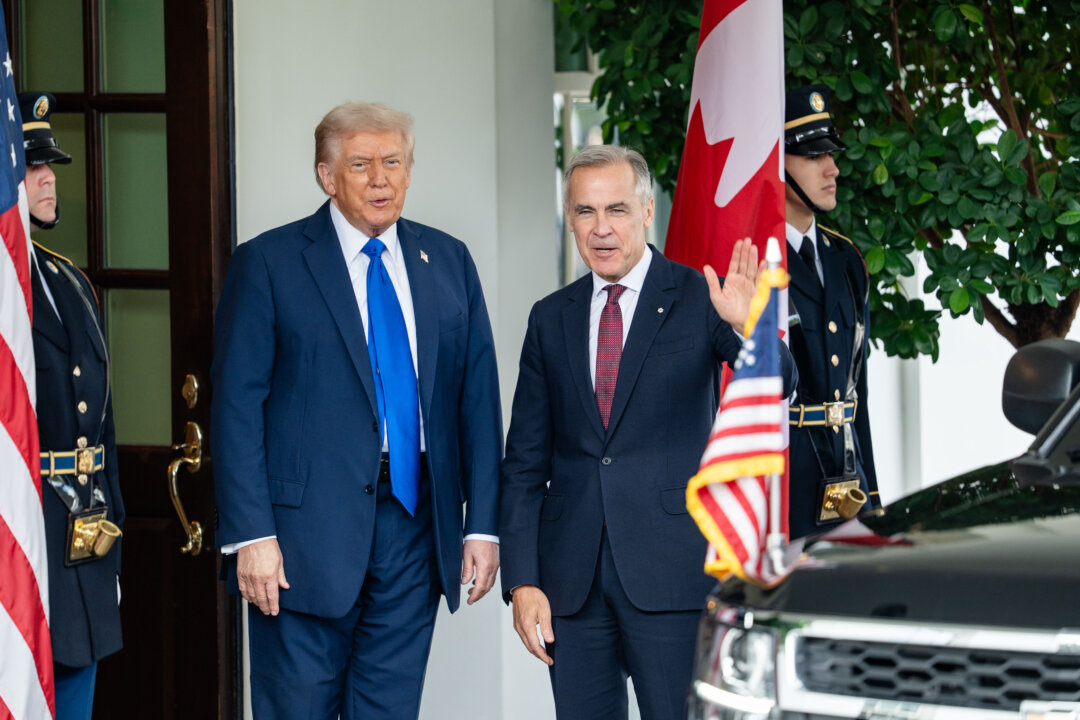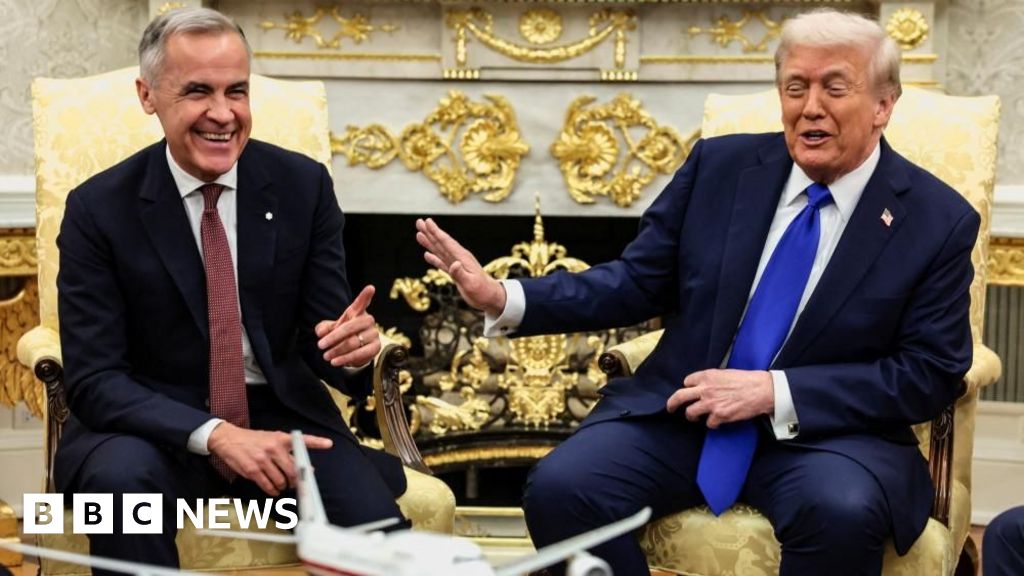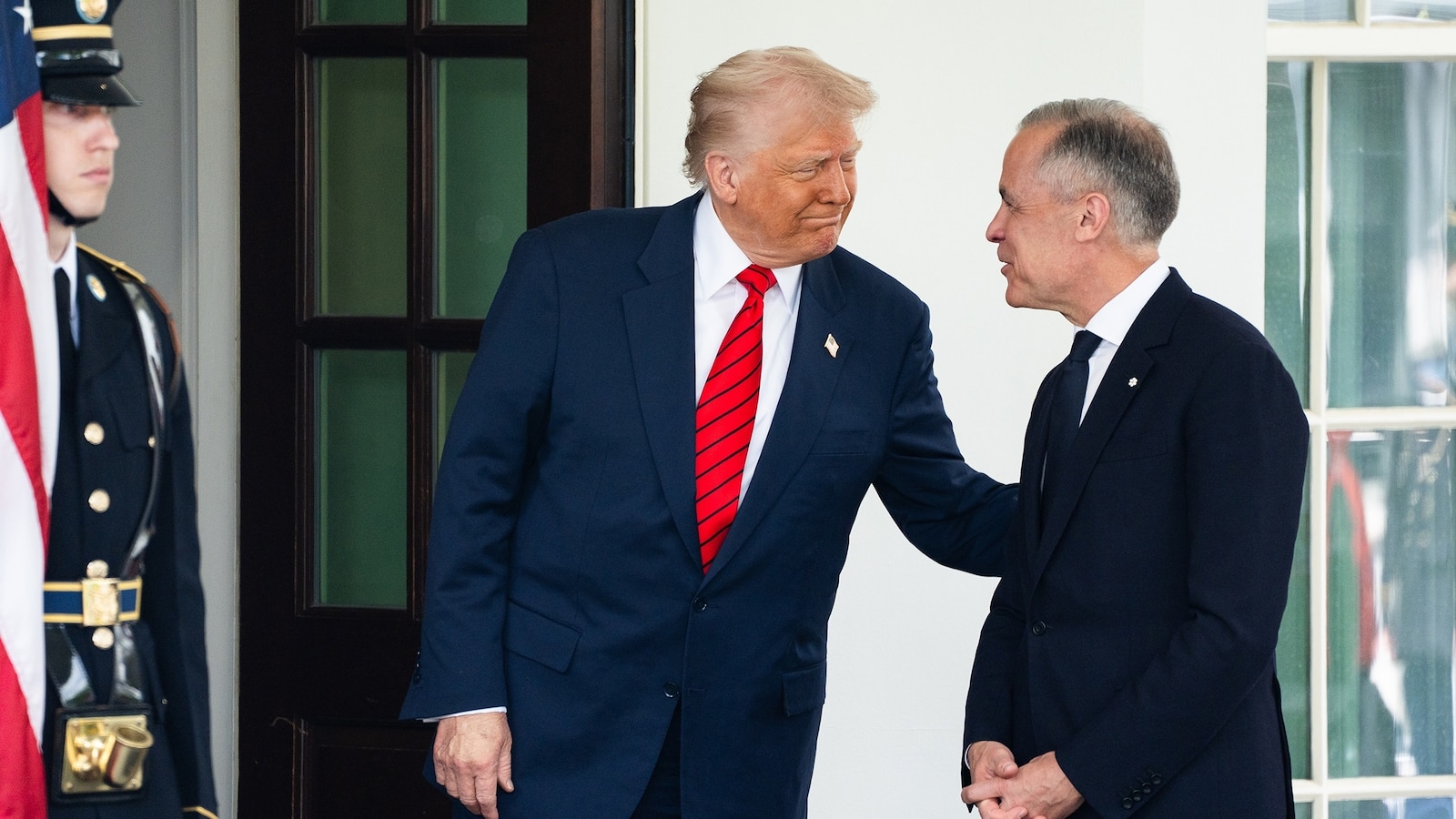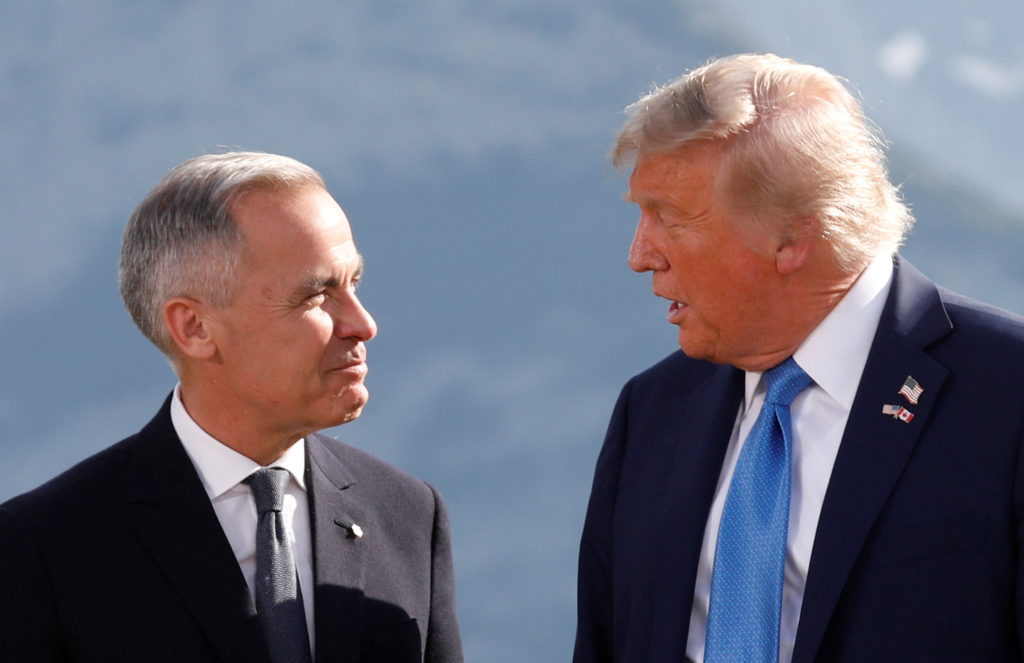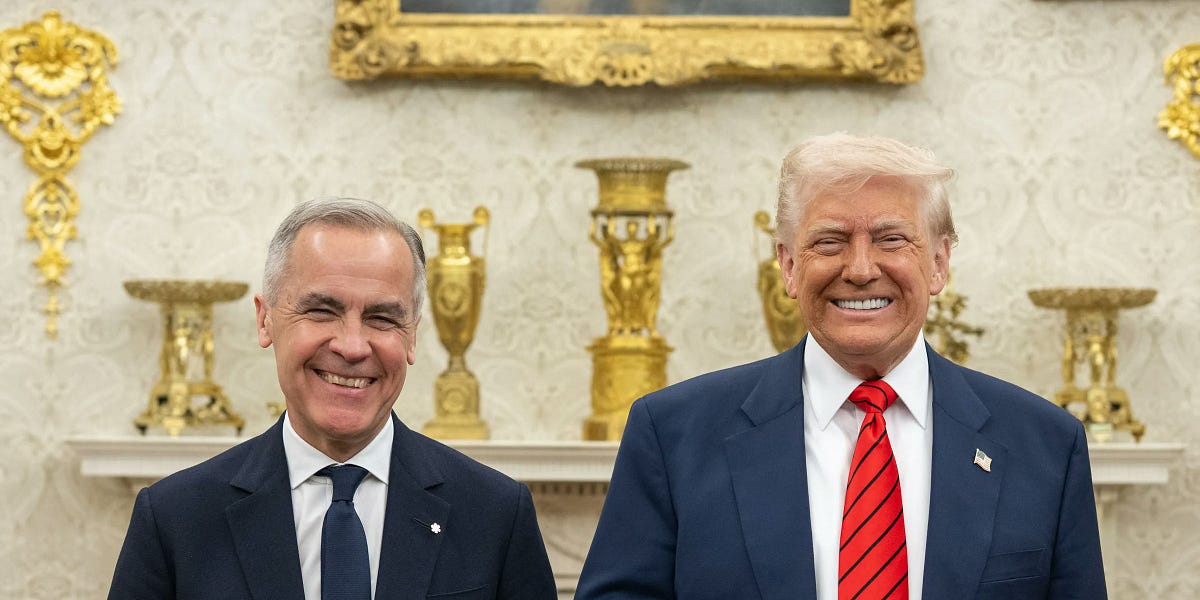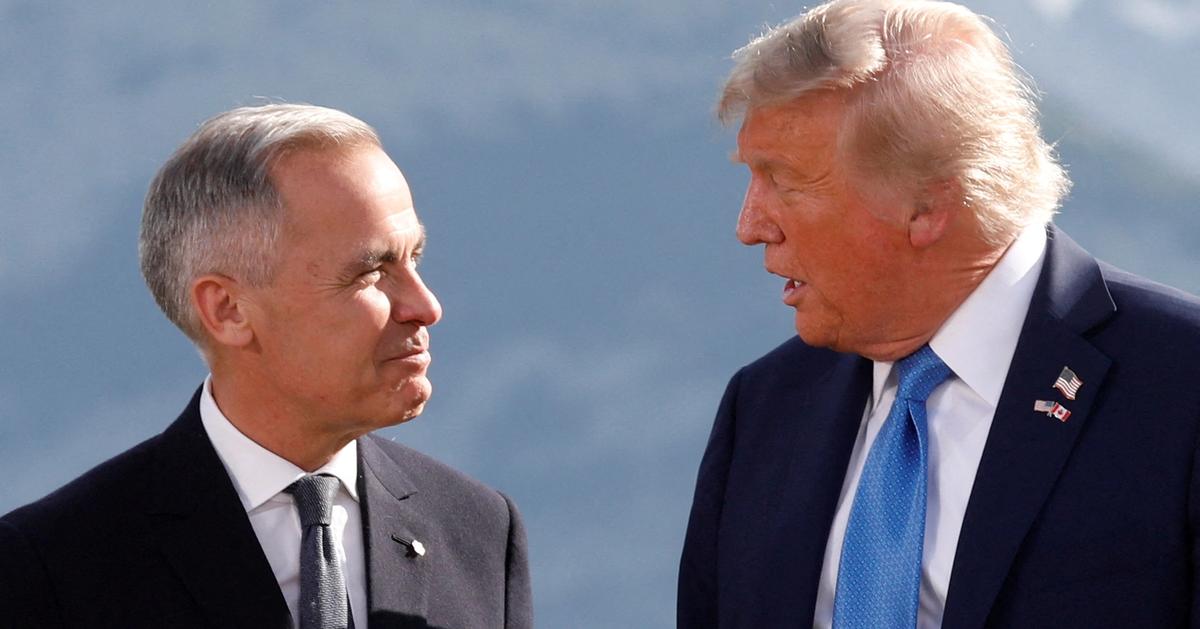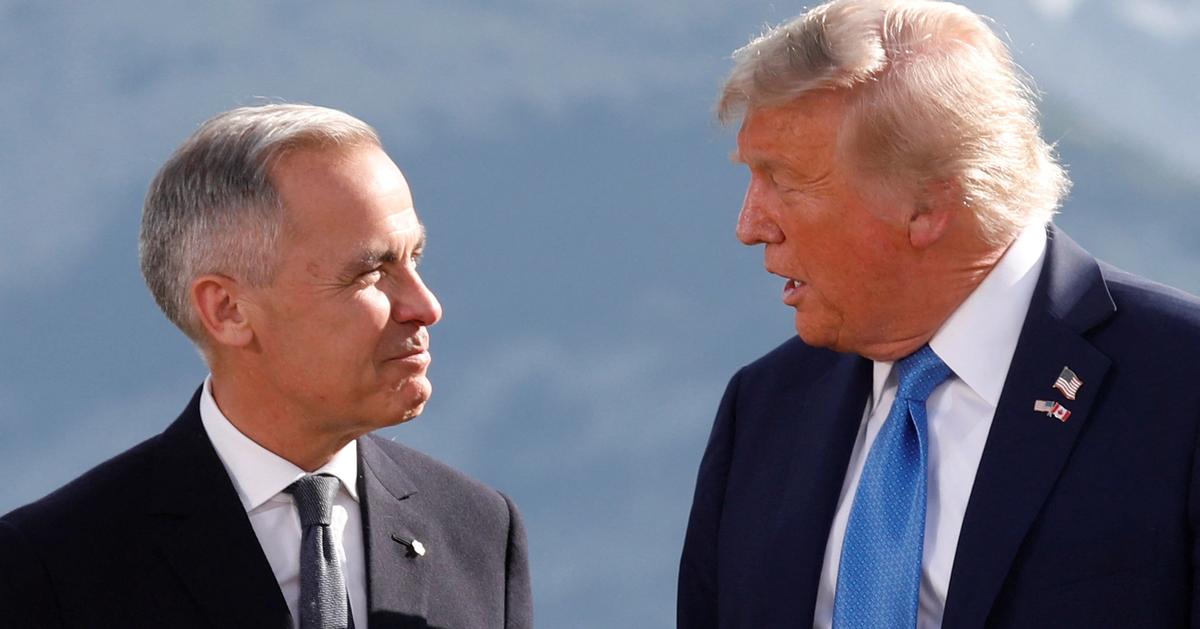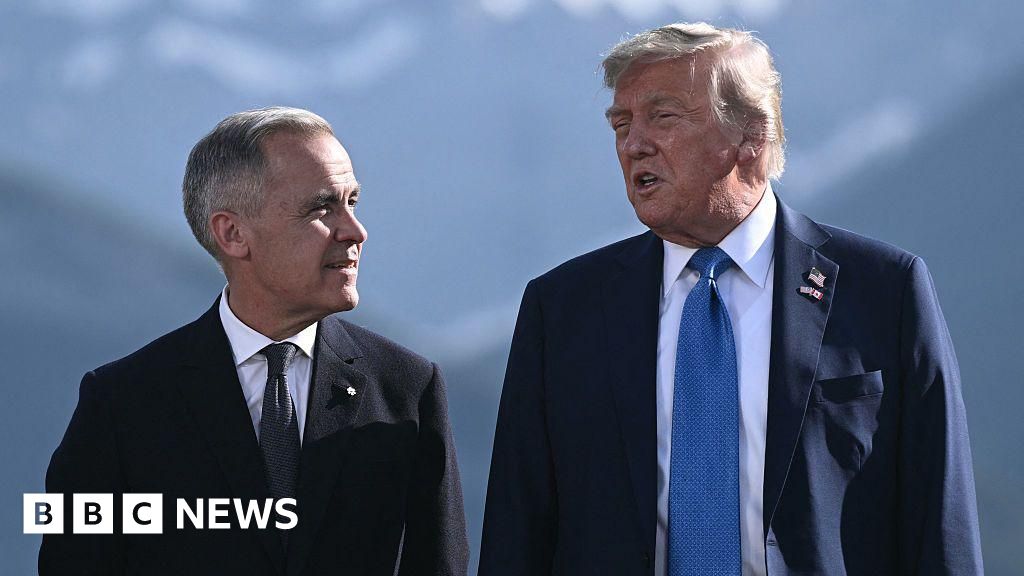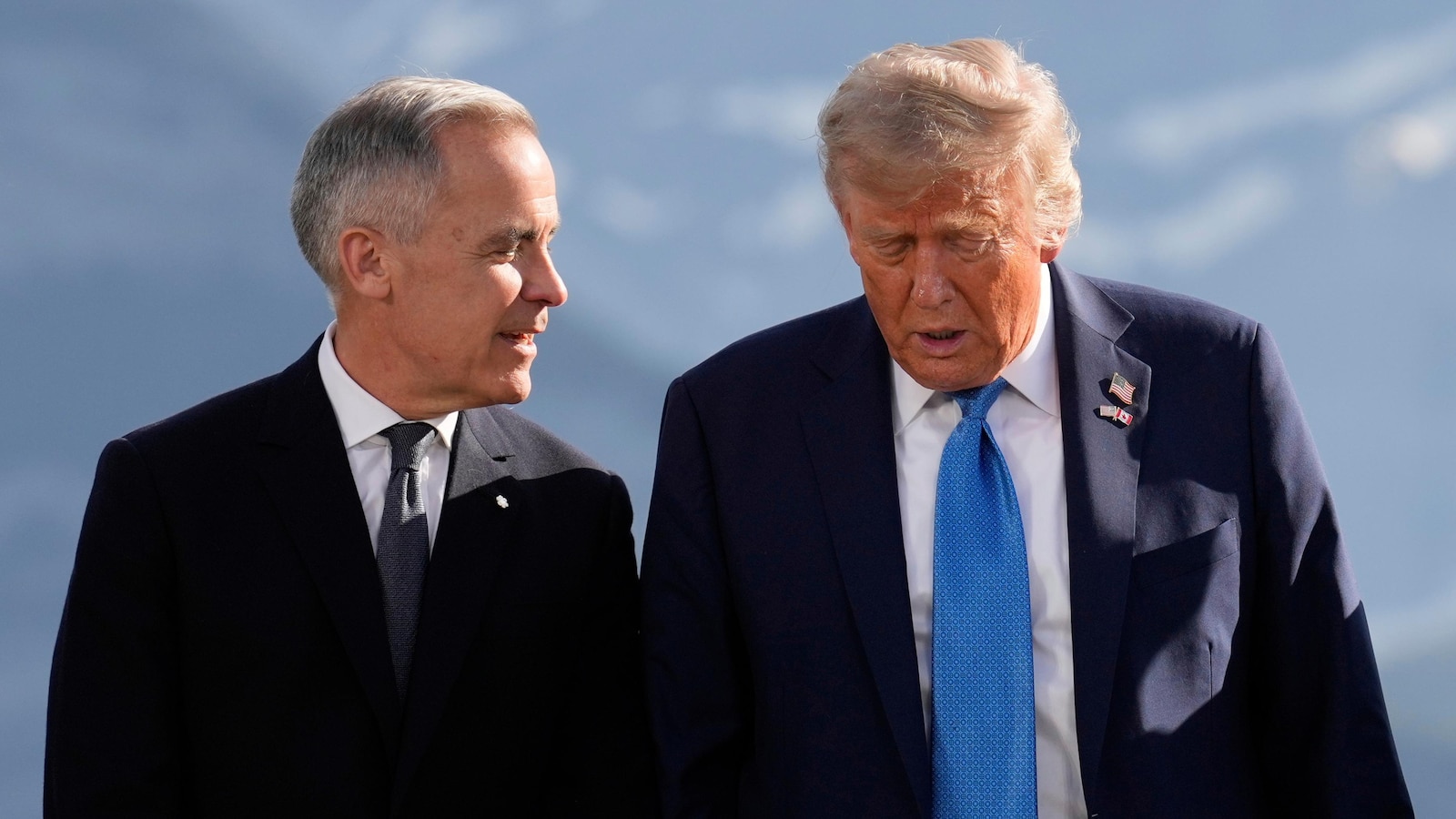Trump Signals Openness to New Trade Deals with Canada Amid Tariff Discussions
President Trump met Canadian Prime Minister Mark Carney, expressing openness to new trade deals despite existing tariffs. Carney sought relief, acknowledging inherent conflict, as USMCA review looms.
Overview
- Canadian Prime Minister Mark Carney met President Donald Trump at the White House to address escalating trade tensions and significant tariffs imposed by the U.S. on Canadian goods.
- President Trump had previously implemented a 35% tariff on most Canadian imports and a 50% tariff specifically on steel and aluminum, intensifying the trade dispute between the nations.
- During their discussion, Trump indicated a willingness to revisit or pursue different free trade agreement deals, expressing confidence that Canada would be 'very happy' with the outcome.
- Carney's objective for the visit was to secure relief on sector-specific tariffs, though he approached the meeting with low expectations, acknowledging the inherent conflict in trade relations.
- This high-stakes meeting precedes a critical review of the USMCA free trade agreement next year, an accord essential for Canada's economy, which heavily relies on U.S. exports.
Report issue

Read both sides in 5 minutes each day
Analysis
Center-leaning sources frame the US-Canada trade talks by emphasizing the contentious nature of the relationship and Canada's challenging position. While acknowledging cordial interactions, the collective coverage highlights Canada being 'at loggerheads' over trade, facing 'punishing steel duties,' and its Prime Minister walking a 'tightrope' amidst public distrust due to Trump's rhetoric. This approach underscores the difficulties and underlying tensions.
Articles (15)
Center (8)
FAQ
The U.S. has imposed a 35% tariff on most Canadian imports and a 50% tariff specifically on steel and aluminum, intensifying the trade dispute between the two countries.
The 2026 joint review of the USMCA is critical because it determines whether the agreement will be extended beyond its 16-year sunset clause; Canada relies heavily on U.S. exports, making the agreement vital to its economy.
The public consultation process allows stakeholders such as businesses and associations to submit comments and participate in hearings that inform the U.S., Canadian, and Mexican governments' negotiating positions before the USMCA joint review.
Prime Minister Carney aimed to secure relief from sector-specific tariffs imposed by the U.S., though he approached the meeting with low expectations due to the inherent conflicts in trade relations.
If the parties do not agree to extend the USMCA beyond 2036, the agreement will expire, which could disrupt trade relations and economic ties between the U.S., Canada, and Mexico, leading to uncertainty in tariffs and trade policies.
History
- 1M

 3 articles
3 articles
- 1M

 3 articles
3 articles
